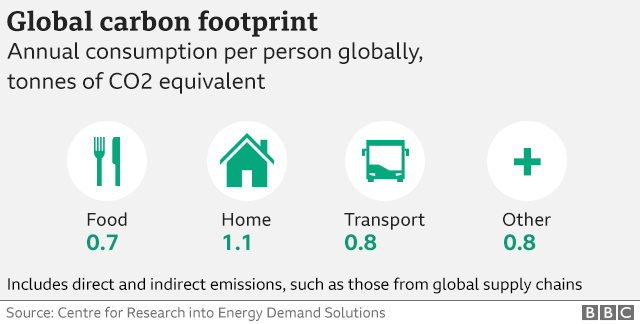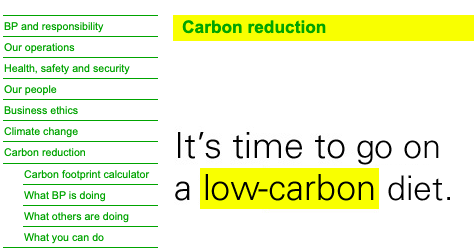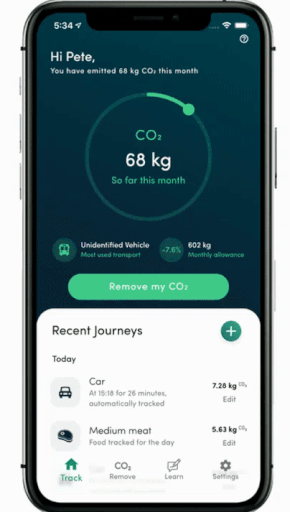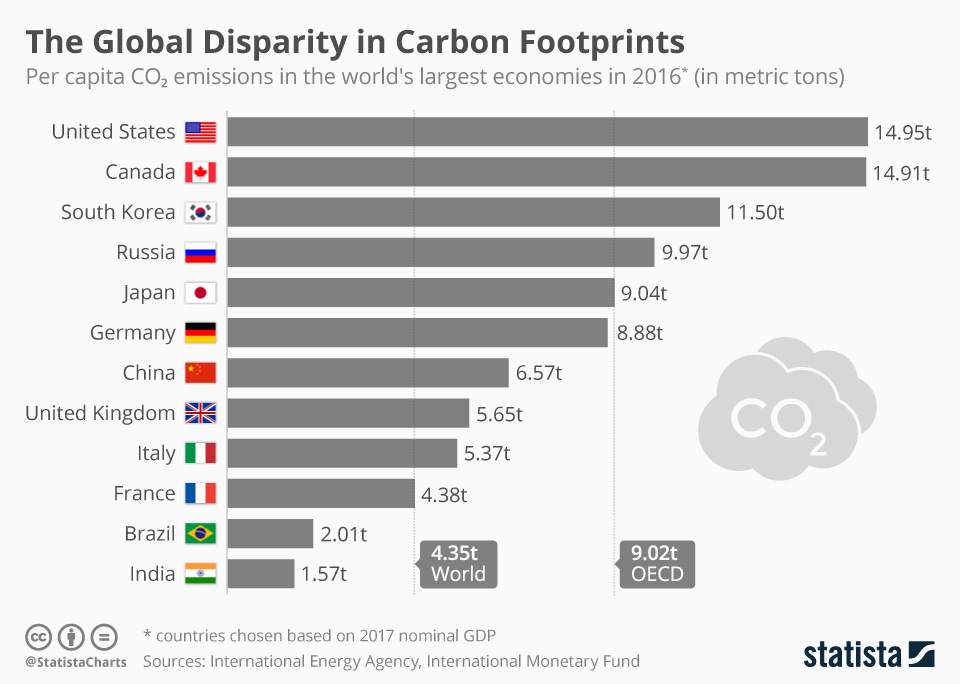Why are we so interested in our personal carbon footprints?
The Green Fix on a concept invented by the fossil fuel industry.
This email is brought to you powered by fossil fuels, I’m afraid.
It has to be. The internet relies on oil, gas and coal to keep running.
Living in Europe, or most countries in the world, means you are leaving a carbon footprint. And our personal footprint is framed like a receipt of our sins, a constantly updating record of our wrongs against nature.
Why didn’t we recycle that coffee cup? I could have shaved carbon emissions off my running total by walking rather than taking public transport. Do I even know how many more emissions it creates to turn my webcam on?
Any effort to reduce your impact on the planet should be encouraged, of course. But the carbon emissions problem doesn’t start with us.
It starts with governments relying on fossil fuels to power the nation, and the lack of affordable and accessible alternatives, and polluting companies cornering the market and misleading the public, and the centuries-long legacy of industrialisation.
These are not fixed by taking public transport rather than the car.
Instead consider this lifehack to slash your carbon emissions: tackle the political, economic and social issues that drive pollution, and shift the spotlight onto those who bear the greatest responsibility.
***
The Green Fix is collaborative: I write about what you want to hear about. This relies on people sending in their questions and suggestions. Shape the newsletter by taking part in the Instagram polls and filling in this feedback survey.
***
Do you find the Green Fix useful? Then please share it! I run The Green Fix for free, in my own time, alongside a full-time job *world’s tiniest violin starts playing*. This means I don’t always (read: never) have the time to promote it as widely as I’d like to. If you like this newsletter, please help me by sharing it using the button here:
What’s Going On?
Freezing weather in Texas overwhelmed the energy grid, leaving many without power or water for days.
Useful: Why is it so cold in the United States?Schools and villages in the UK lead surge to plant a million trees.
Related: Is it possible to plant enough trees to save the world?Indian environmental activist Disha Ravi released from prison after being accused of sedition.
Useful: Why did police arrest a 22-year-old climate activist?Plans to build Europe’s largest gas plant in the UK are scrapped.
Useful: What are the UK’s carbon emission reduction goals?New UN report reveals world not even remotely on track to meet Paris Agreement targets.
Related: What is the Paris Agreement?
Focus On… Carbon Footprint
Here are some facts.
71% of greenhouse gas emissions were produced by 100 companies between 1988 and 2015.
One of the highest-emitting companies in the world is BP.
Surprising then, that in 2004, as part of a new marketing campaign to rebrand BP as a socially-conscious company, PR organisation Ogilvy & Mather came up with the concept of the personal carbon footprint.
BP popularised the idea of the personal carbon footprint - how many CO2 emissions are released as a result of the activities of an individual - and followed up with a calculator on their website to encourage the public to track the impact of their actions.
The campaign worked. 278,000 people used the calculator in 2004. BP’s sales continued to grow.
Critics pointed out that putting the responsibility to reduce greenhouse gas emissions onto individuals was a convenient way to shift the spotlight away from the fact that the company made very few significant changes to their own polluting business practices.
BP claimed to care - but just last year BP’s own boss said he was becoming disillusioned with the company’s role in increasing pollution.
[Related: What is greenwashing?]
Nearly 20 years later, and the notion of the personal carbon footprint has become a staple of the environmental movement. The internet is filled with lists of suggestions to reduce your impact by taking reusable bags, recycling and using public transport.
But is there any solid basis for caring about our individual footprint?
Josie Stoker, co-founder of Capture, a digital platform and an app that allows users to track their individual CO2 emissions from transport and food choices, thinks so.
“Our lifestyle choices come with environmental consequences,” she says. “There has been a huge lack of data to help us understand the full impact of our actions, and we are now seeing more information coming to light to help us make more conscious choices.
“People are taking ownership of lifestyle emission data and turning it back on the very company who popularised the term 'carbon footprint'. Back in 2004, a lot of people didn't have much choice about avoiding BP's products - but that is certainly changing now.”
The power to reduce emissions as an individual requires the option to make low-carbon choices. A society propped up on fossil fuels means that even the most determined environmentalist will always have a footprint. So isn’t using calculators like this just a distraction?
“Holding our hands up and saying 'it's not our fault' isn't likely to help the situation,” says Josie. “Who buys from these companies? Who invests in these companies? By learning more about the larger emission-impact actions you take every day, you can start to see how they link back to keeping these polluting companies in business.”
It’s less black-or-white than saying that individuals actions do or don’t matter. Even if our individual emissions are dwarfed by those of corporations, there is more than one way to make a change as an individual beyond agonising about your plastic-wrapped sandwich.
Scientists name reducing consumption of meat and dairy as one of the most impactful things you can do for the environment. Reducing air travel slashes the majority of your carbon emissions for a whole year. Divesting from banks investing in fossil fuels and switching to green energy is several degrees more impactful than recycling.
But ultimately, we shouldn’t measure our impact just through a summary of our daily emissions: the greatest tool one person has to help the climate is their voice. Voting, activism and spreading awareness about the key drivers of climate change can keep the public spotlight on the biggest polluters.
A climate-literate public is one that knows what changes to demand from corporations and governments. By keeping our eye on the big picture - the need for a complete phase-out of fossil fuels - we can get smarter about effective action.
Less time wracked with guilt over that unnecessary car journey and more time emailing politicians. Less time worrying about the plastic toothbrush and more time keeping the spotlight on BP and fossil fuel companies that hoped you would stay distracted.
You can check out Capture here.
So Now What Do I Do?
LEARN MORE
Read: why do oil companies care so much about your carbon footprint?
Read this Oxfam report: the richest 1% of the world are responsible for more than double the carbon pollution of the poorest half of the world.
Read: Are fossil fuel companies trying to go green?
TRY SOMETHING NEW
Download the #BlockFossilsOut extension to block out companies investing in fossil fuels.
Check if your bank is funding fossil fuels and switch to one that isn’t.
Join the Fossil Free University program to learn how to be a climate activist and hold fossil fuel companies accountable.
CHANGE THE SYSTEM
Sign this petition for the EU to clean up industrial pollution, and this one for the EU to put a price on carbon.
Join your local Fossil Free movement or start your own!
Sign up for the From the Ground Up global gathering on environmental justice on the 27th - 28th March (note: not all webpages are up yet but you can still register).
By the way…
Check out Baleen, a weekly email digest which filters through the latest sustainability and marine conservation news to share the stories that matter.
If you have a topic you want the Green Fix to cover, fill out this feedback form & tell us your idea!
Stay in the loop
I share updates on the Green Fix, polls and additional resources on Instagram @coffee_and_casstaways. You can also say hi on Twitter.
Know someone interested in environmental issues? Forward this email to them - we want to reach people who care about doing more for the planet, with your help!








